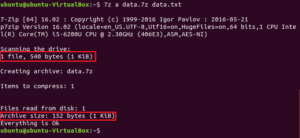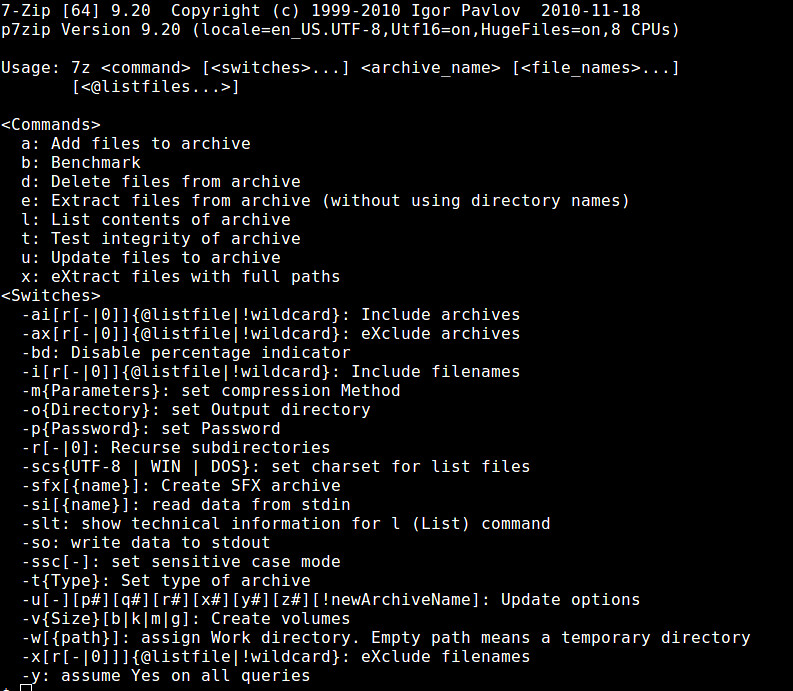


Step 4: You can also decompress files created using 7zip utilities. That’s how you compress file in 7zip format on Ubuntu. Now click on “ Create” to compress the file. Click on the marked drop down menu as shown in the screenshot and select tar.7z.

Right click on a file you would like to compress using 7zip, and click on “ Compress”įile compression window will appear. Step 3: Once the installation finishes, you can now create and extract 7zip files. It will take a while depending on your internet connection. Now type in the following command and press Enter to install 7-zip on Ubuntu. So you can have the latest software packages available on the official Ubuntu repository. This command will update the repository database of your Ubuntu operating system. Type in your user password and press Enter. Step 2: Type in the following command and press enter. Or you can right click on the Desktop and click on “Open Terminal”. You can also go to the Unity dashboard and search by the keyword “Terminal” and click on the terminal. You can open your terminal by pressing Control, Alt and T at the same time. Step 1: First open the terminal of your Ubuntu operating system.

With basic I mean, how to open a terminal on Ubuntu and how to execute commands. Good internet connection to download the required software packages from the internet.A computer with Ubuntu operating system installed.To follow this tutorial, you need to have the following requirements: This is a step-by-step tutorial on how to install 7-zip compression utilities on Ubuntu. Which has high compression ratio? In this tutorial we will learn how to install 7-zip compression utilities on Ubuntu. You can learn more about 7-zip at this link ( ) on their official website.ħ-zip can compress files in 7z format. Many of you are familiar with 7-zip which is an open source software for archiving/compressing files and decompressing files. But at times we need to add additional compression file format support on Ubuntu. Ubuntu support most of the compression file formats by default.


 0 kommentar(er)
0 kommentar(er)
